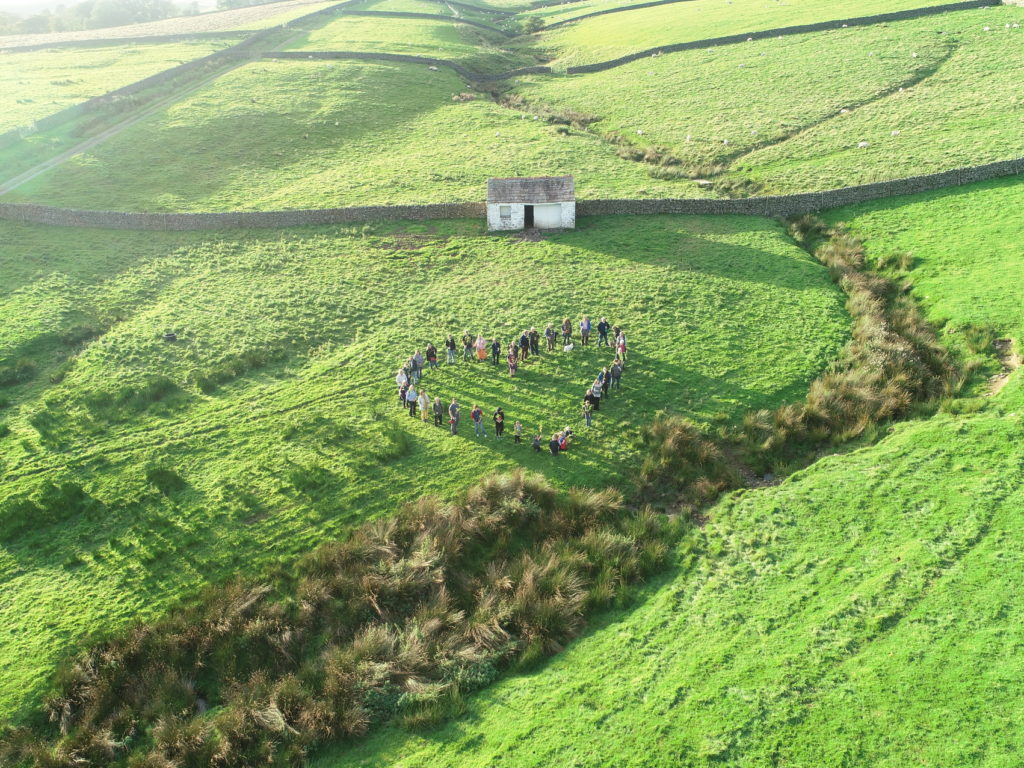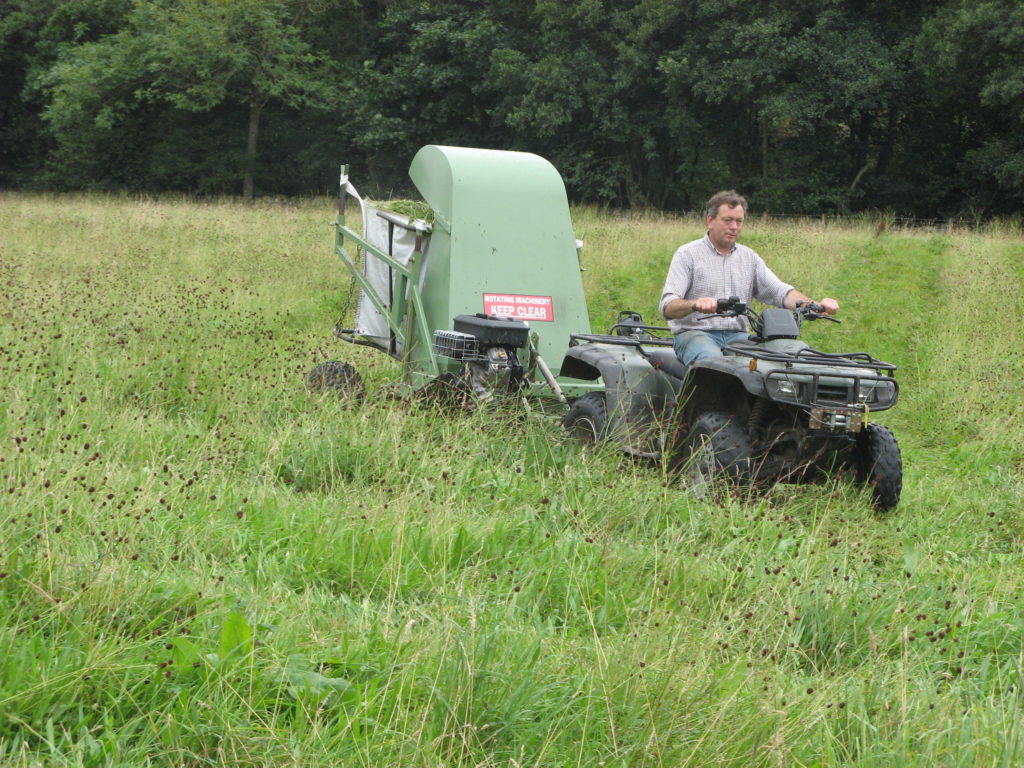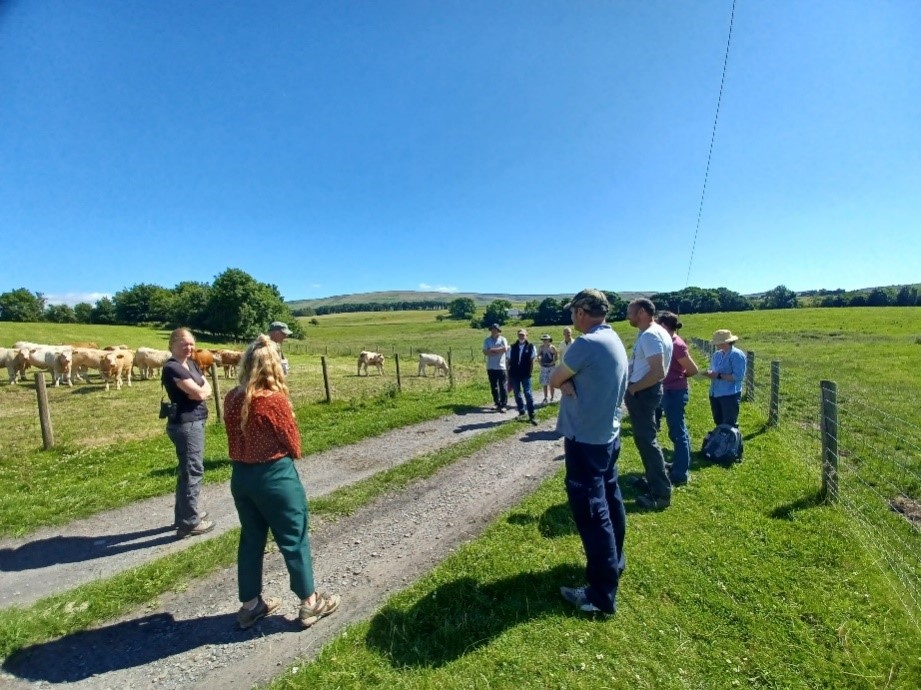North Pennines Stargazing Week
A star society
1 November 2020
A star society
An interview with Duane Cox, Chairman and Founder of Bishop Auckland Astronomical Society
As Chairman and Founder of Bishop Auckland Astronomical Society, I have been a member since its inauguration in March 2011. I had the idea of starting a society because I was based halfway between two other societies which both charged an annual subscription. My idea was to start a society which didn’t charge an annual fee just a charge on the door with refreshments available. My thinking was that this would benefit people who were on a lower budget but had an interest in astronomy. They would be able to come along to any of our meetings or event. Our membership is still completely free. Things have changed considerably from very meagre beginnings to the society now being 100% self-sufficient. It has been hard work for the four Trustees, including myself, but very much worth it.
In March 2021 the society will have been running for 10 years. We now have over 40 members and it is going from strength to strength. Up until the Covid pandemic we were running regular monthly meetings with some top-class speakers. We also have regular observing sessions at our dark site as well as outings to places of astronomical interest.
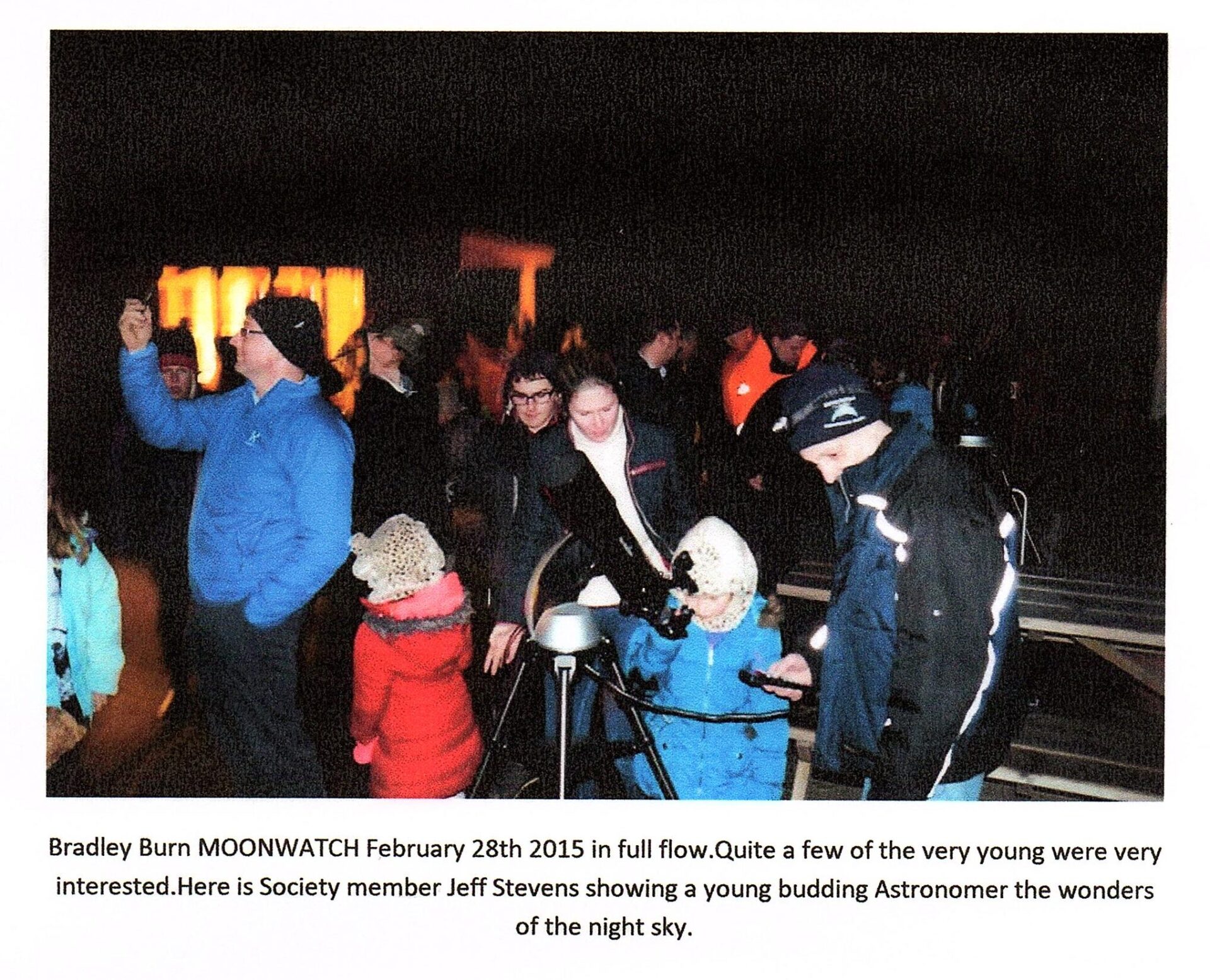
We do a lot of presentations and sessions with schools, scout groups, WIs, and anywhere that will have us. Our aim would be to have a pop-up planetarium that would help us to run these sessions to promote astronomy as much as we can. For me the most enjoyable aspect of this is talking to primary schools. The questions the little ones have for you are an eye opener. They love to help out with experiments, such as making Moon craters out of flour and cocoa powder. I always come home smelling like a chocolate bar after those events.
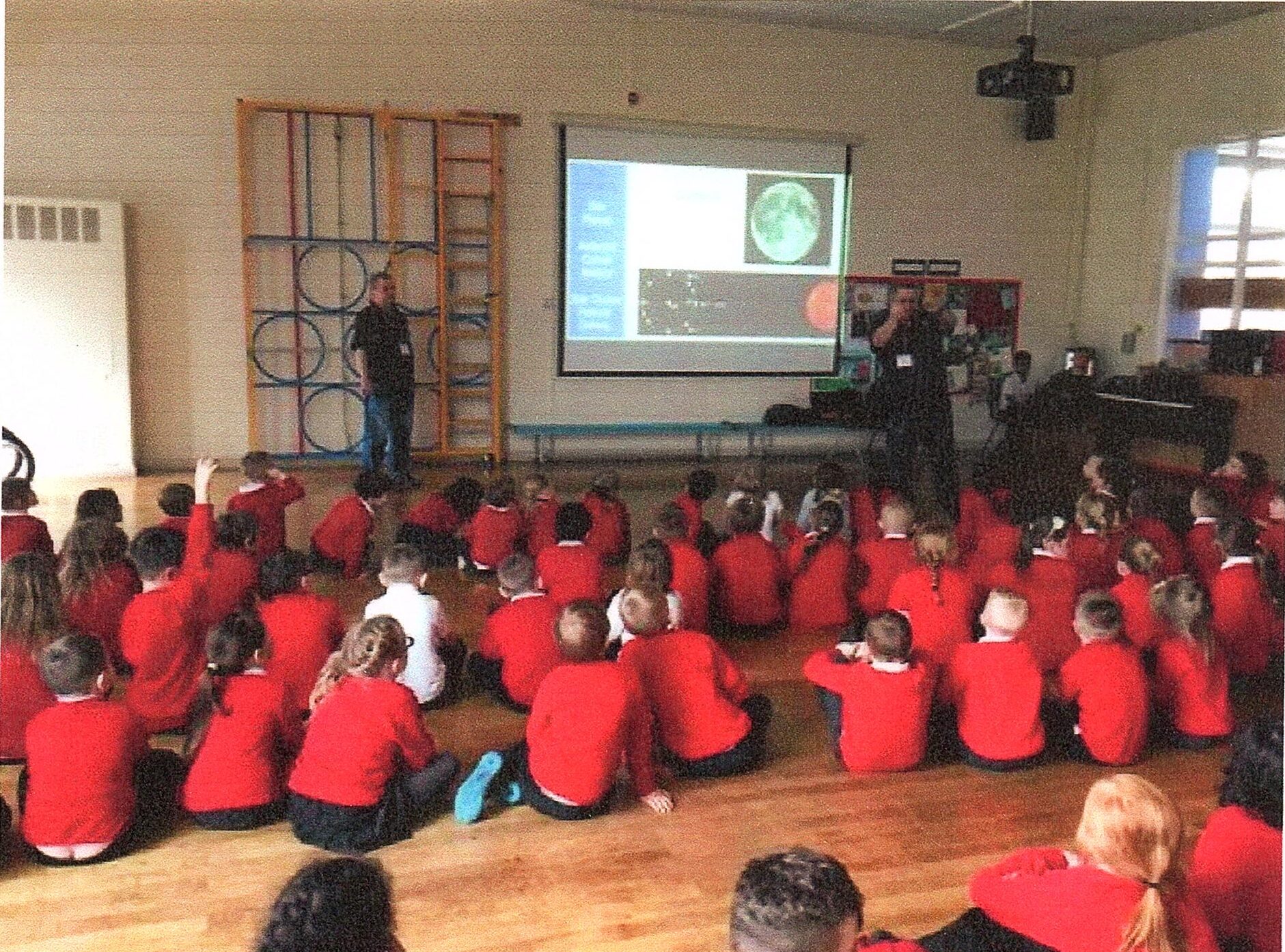
A typical trip out would be to our dark site, Balderhead Reservoir in the North Pennines. We would stay there as long as the sky stayed clear. The early hours are ideal on a moonless night, the air is still, the sky is crystal clear, with the stars like diamonds on black velvet. After setting up the telescopes, each of our members has their own field of interest. Mine is galaxy hunting. To see a galaxy 30 million light years away, for example, is amazing. When you think that the light you are seeing from that galaxy left 30 million years ago and is just reaching your eye now, it is mind blowing.
In the winter months it does get very cold, I’ve been out observing when it’s been down to -10, but the sky is so beautiful when it is so cold and clear. ALWAYS wrap up warm. That’s not just putting on a big coat and thinking that will do, it won’t. Dress in layers, that way body heat is trapped between the layers, plus ALWAYS wear a hat because most body heat is lost through your head.
You don’t have to be an expert to join our Astro society. That’s why you join, in order to learn. We have members trained to help new inexperienced members, and there is no such a thing as a daft question. Also, you don’t need to have any special equipment. I would always say come to a meeting first and if you think it is for you, then you can join. If you are starting in astronomy, buy a pair of binoculars. A good starting point would be a pair of 10×50’s. 10 means the magnification and 50 is the diameter of the large lens at the front. Our members have varied equipment from small telescopes to big ones up to 10″ diameter. These are awesome. I myself have five telescopes; two working from GPS satellites.
The only stargazing disaster I can think of was when we went up the dale to an event we were doing for a hotel and Storm Desmond hit us. We got to the venue but could barely open the car doors as the rain was belting down in torrents. The wind was unbelievably strong and trees were laid in the road. The emergency services were out with chainsaws, boy what a night that was. The biggest success I had was at our dark site one cold winter’s night. As I was showing an interested member of the public the night sky, a brilliant fireball (a very bright meteor) flashed across the sky, making a beautiful reflection in the calm waters of the reservoir. The person in question was so amazed, she joined our society there and then.
If I was talking to someone young just starting out in our fantastic hobby, I would say join a society. Societies are the place where you will meet like-minded people who will give you expert advice on what you would like to do next. Ask them nicely and they will most certainly let you have a look through their telescope. Go online, find a simple sky chart, and learn one constellation per week. In no time at all you will have a sound knowledge of where most things are. Then get a pair of 10×50 binoculars next IF you are still interested. Don’t buy a Telescope until you are absolutely sure you are wanting to take your interest further.
My favourite object to see is the Great Orion Nebula (M.42). It is one of the most photographed nebula in the northern sky. Even in my 20×80 binoculars you can see structure, and twists and curls of the abundant gas and dust. It is a firm favourite of mine. The only planet I haven’t seen as yet is the minor planet Pluto. This little body is over 3.6 billion miles away, but just in range of my big telescope, so fingers crossed.
My favourite all time place to go observing in the North Pennines AONB would be Balderhead Reservoir as it is so dark. There is only a very small dome of light present in the sky to the north east, but for what it is, it’s not worth worrying about. A moonless night up there, you look overhead and there are a multitude of stars. I have spent hours up here, well into the early hours. Dozens of satellites going over, meteors making their presence known – it’s a totally new world up there. Another of my favourite places in the North Pennines is Nenthead, even though both times we have all been up there during the North Pennines Stargazing Festivals it has been cloudy or raining.
This blog is part of the North Pennines Stargazing Week 2020. Visit our Stargazing Week hub for more events, blogs and features.

